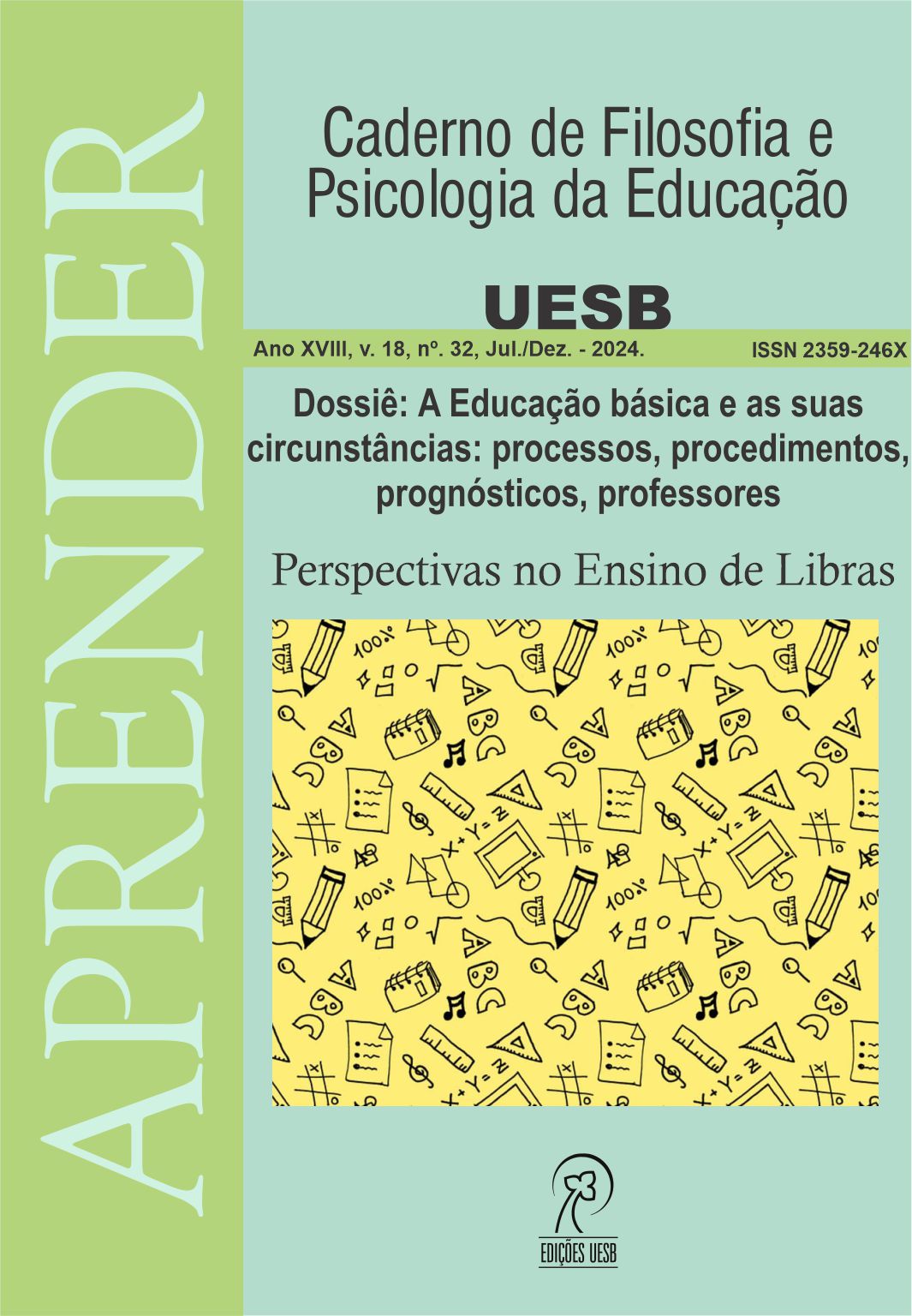From the dissertation-argumentative text to self-evaluation: the process of construction of argumentation and citizenship
DOI:
https://doi.org/10.22481/aprender.i32.15358Keywords:
Self-assessment, dissertation-argumentative, citizenshipAbstract
This article presents a pedagogical practice carried out in the Supervised Curricular Internship II of the Course of Letters - Portuguese and Spanish at the Universidade Federal da Fronteira Sul (UFFS) campus Cerro Largo. The internship was developed in a second year class of a public high school, lasting 16 hours. The lesson plan worked the dissertation-argumentative text through the theme "Regulation of Social Networks" based on the method of Didactic Sequence (Dolz, Noverraz, Schneuwly, 2004). This didactic tool consists of pre-reading, reading and post-reading activities, with two textual productions: the text of survey (Dolz; Noverraz; Schneuwly 2004), which aims to identify the previous knowledge of the students and the final textual production, that consists in the development of a writing in a simulated National High School Exam (ENEM). In addition, we conducted a self-assessment, in which the students could reflect critically on their teaching and learning process, identifying through a questionnaire, their difficulties and evolution throughout the classes, not only focusing on the quantitative evaluation made by the teacher. Thus, from the results presented in self-assessment and textual productions, we conclude that students demonstrated a good use of the content worked, developing critical sense, argumentation and, consequently, citizenship.
Downloads
References
ALMEIDA, Claudimar. Paes. de; NOGUEIRA, V. B. O professor de língua portuguesa: o perfil do educador diante das transformações no ensino da língua materna. Disponível em: https://edoc.ufam.edu.br/retrieve/81b40f3c-e543-4158-9033-3d41df13ffc6/TCC-Letras-2013-Arquivo.006.pdf. Acesso em: 22/05/2024.
DOLZ, Joaquim; NOVERRAZ, Michèle; SCHNEUWLY, Bernard. Seqüências didáticas para o oral e para a escrita: apresentação de um procedimento. Trad. Roxane Rojo e Glaís Cordeiro. In: SCHHNEUWLY, Bernard; DOLZ, Joaquim. Gêneros orais e escritos na escola. Campinas, SP: Mercado das Letras, 2004. (p. 95-128)
FREIRE, Paulo. Política e Educação. 2° Ed.. São Paulo, Paz e Terra, 2015.
FREIRE, Paulo. Pedagogia da autonomia: saberes necessários à prática educativa. 71ª edição. Rio de Janeiro: Paz e Terra, 2021.
FUZER, Cristiane. Bilhete orientador como instrumento de interação no processo de aprendizagem de produção textual. Letras, Santa Maria, v. 22, n. 44, p. 213-245, jan./jun. 2012.
GERALDI, João Wanderley. A aula como acontecimento. São Carlos: Pedro & João Editores, 2010.
OLIVEIRA JÚNIOR, Oliveira. Barreto. A redação do ENEM e o sucesso escolar entre alunos do Ensino Médio. In: IV Simpósio Internacional de Ensino de Língua Portuguesa, 2014, Uberlândia-MG. Anais do SIELP. Uberlândia-MG: UDUFU, 2014. v. 3.
SANTOS, Leonor. Auto-avaliação regulada: porquê, o quê e como?. Disponível em: https://repositorio.ul.pt/handle/10451/4884. Acesso em: 29/05/2024.
Downloads
Published
How to Cite
Issue
Section
License
Copyright (c) 2024 APRENDER - Caderno de Filosofia e Psicologia da Educação

This work is licensed under a Creative Commons Attribution-ShareAlike 4.0 International License.






